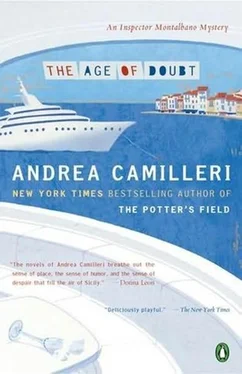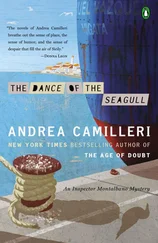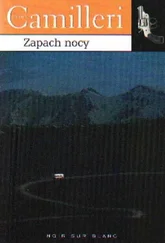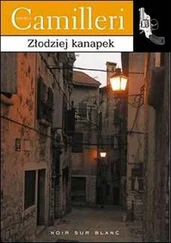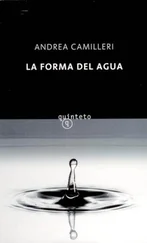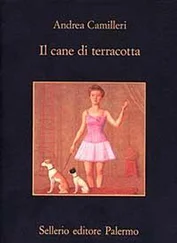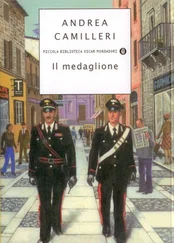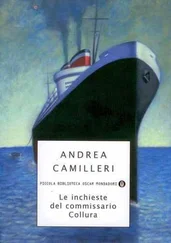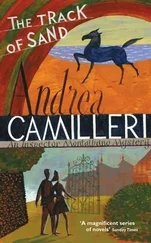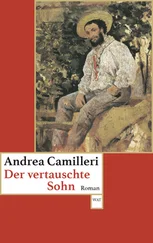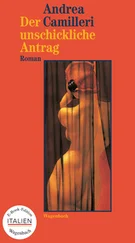“Yessir, Chief!”
The inspector was certain that Catarella had stood at attention when saying this.
“I want you to do an Internet search for the name Kimberley Process.”
“No problem, Chief. Ya jess gotta tell me how iss writ.”
“I’ll try. The first letter is a K. ”
A good three minutes passed without Catarella saying anything. Maybe he’d gone to look for a pen.
“Cat?”
“I’m here, Chief.”
“Did you write down the K ?”
“Not yet, Chief.”
“Why not?”
“I’s wunnerin’ if iss a K witt or wittout the O .”
“Without, Cat.”
“So how you write a K wittout the O ?”
At this rate, it was going to take them a week. Because once they got past the stumbling block of the K , there was still the Y at the end [12].
“Listen, Cat, tell you what. I’ll write it down on a piece of paper and drop it off at the station for you before going to Montelusa, okay?”
***
As he was on his way to Vigàta, the inspector realized that Geremicca’s call had come at absolutely the right moment. If he wanted to see Montalbano, then he must have received news from his French colleague, which meant that the investigation was about to be enriched with new elements, and the inspector could throw himself into it body and soul. He didn’t give a flying fuck that the commissioner had taken him off the case; he would carry on just the same. The investigation was more vital to him than bread itself, and for one simple reason: it would not allow him any time to think about Laura.
He pulled up in front of the station, didn’t bother to park, got out of the car, leaving the door wide open, went inside, gave the piece of paper with the name Kimberley Process written on it to Catarella, and said:
“I’ll be back in an hour.”
“Wait, Chief.”
“What is it?”
Catarella clearly felt awkward, as he kept looking at his shoe tops and opening and closing his hands in a fist.
“Well?” the inspector prodded him.
“Y’see, Chief, I gots somethin’ I oughter tell yiz but I ain’t ’ad the pleasure a tell yiz cuz I dunno whither I oughter tell yiz or no.”
“All right, then, when you decide what’s best, you can send me a telegram.”
“Chief, this in’t no jokin’ matter!”
“Then out with it, for Christ’s sake!”
“Please, Chief, le’ss go in yer office.”
If this was Catarella’s way of not wasting his time, well then… Catarella followed him down the hallway. The door to the inspector’s office was closed. Montalbano opened it and went inside.
Fazio was there, sitting in front of the desk with his back to them. Hearing someone come in, he turned around. At that moment the inspector noticed a mortuary pillow of white flowers in the middle of his desk, the kind that one lays down on coffins.
He turned pale, suddenly remembering the dream he’d had about his own funeral.
“What… what…”
He was unable to speak. He looked at Fazio, who was wearing a gloomy, worried expression.
“What else could it be, Chief? This is a classic Mafia warning.”
It was true. Montalbano went over to the filing cabinet atop which he always kept a bottle of water, and drank a glass of it as his brain whirred at high speed.
There was only one explanation possible for this threat. The Mafia must definitely be involved in the activities of the Vanna and the Ace of Hearts . That flower pillow was meant to tell him that if he didn’t back off, they would kill him. Never before had the Cuffaros or Sinagras gone to such lengths with him. Maybe the dream he’d had would even come true.
Montalbano said nothing. He batted the pillow with his hand in frustration, knocking it onto the floor.
“Catarella, grab that thing and throw it into the garbage.”
Catarella bent down, picked up the pillow, and was about to leave the room when Montalbano asked him:
“When did they deliver it?”
“Juss five minutes afore ya got here.”
“Did you see who brought it?”
“Yiss. Ciccino Pànzica, the floriss.”
“Fazio, I want this Pànzica here in front of me in five minutes.”
He had to admit it, he felt a bit scared. Normally he wouldn’t, if not for that damned dream he’d had.
***
Ciccino Pànzica was about sixty years old, with skin as pink as a pig’s.
“You must excuse me if I-”
“I’ll ask the questions around here.”
“Of course, sir.”
“Who ordered that pillow from you?”
“The person didn’t say who he was. They ordered it over the phone.”
Fazio intervened.
“How did you arrange for the payment?”
“They were going to send someone by.”
“And did this person come?”
“Yessir, yesterday evening.”
“Would you recognize him if you saw him again?”
“If I saw him, yes. He was in uniform.”
Montalbano and Fazio looked at each other, puzzled.
“What kind of uniform?” Fazio asked.
“Yours.”
A mafioso disguised as a policeman! This was becoming more and more troubling.
“Can I say something I wanted to say from the start?” the florist asked.
“Go ahead,” said Montalbano.
“The policeman also gave me a little card, which I forgot to deliver with the pillow.”
Normally, however, these kinds of threats never contained any written messages, Montalbano thought.
“Let’s see it.”
The florist handed it to him. It was a calling card in an envelope. Montalbano opened it. On the back of the card were the words: Sincerest condolences. Lattes .
As Montalbano was entering Geremicca’s office, he had no idea that in a few minutes, inside those four walls, a word would be uttered, only one, but that word alone would suffice to put him on the right track.
Upon seeing Montalbano, Geremicca stood up smiling and rotated his right hand in the air, as if to say that something really big had happened.
“Montalbano! You’ve landed a big one!”
“Me? What’d I do?”
“I e-mailed my French colleague a photocopy of the passport you gave me. And I told him that you’d told me that the name on the passport was the same as that of a character in a Simenon novel, if I remember correctly.”
“That’s right. And so?”
“And so he started telling me that a month ago they’d arrested an expert forger, a real master, but the guy refused to name his clients. They had, however, managed to confiscate two passports ready for use, among other things. Your passport, together with these, made three. And thanks to the clue we’d given them, my friend discovered that the forger was in the habit of using fictional names of characters from French literature. Imagine that!”
“I guess the guy liked to read.”
“And there’s more. The names the forger chose always had some sort of connection with something the client did in real life.”
“Can you give me a little more detail?”
“Sure. Just to give you an idea, my colleague said this Émile Lannec, the fictional character, owns a small steamboat in the novel. Is that true?”
“Absolutely.”
“Well, thanks to some other information, and despite the mangled face, my colleague was able to identify the man on the passport. His name is Jean-Pierre David. He has a clean record, but the police have had their eye on him for a while.”
“And what’s the thing connected to his real life?”
“His father used to own a small steamboat that eventually sank. And so the clue you gave them helped lead the French to the true identities of the other two whose passports were ready for use. They convey their heartfelt thanks to you.”
Читать дальше
